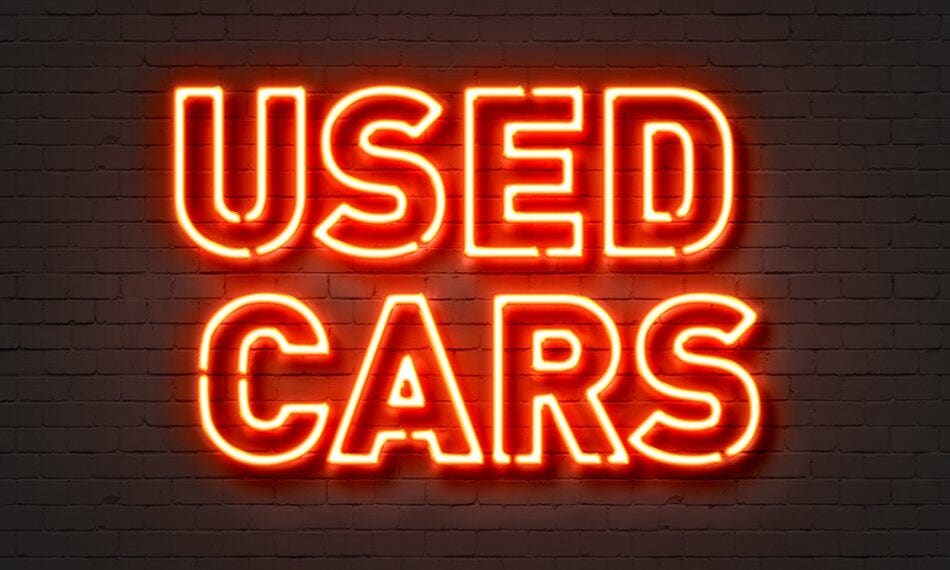Selling a vehicle can be time-consuming and frustrating so it’s not surprising that many car owners choose to sell their vehicle through a used car dealership or consignment lot. For some having someone else taking care of selling a vehicle is worth getting less in their pocket when their car sells. If you decide to opt for a used car dealership or consignment lot to sell your vehicle visit the Alberta Motor Vehicle Industry Council (AMVIC) website for a list of licensed businesses (and run far away if the business you’re dealing with isn’t licensed as it’s required by law).
When should you sell your vehicle by consignment?
If you don’t have the time or technological know-how of how to advertise show and sell your car it may be worth it to pass on that job to someone else. Some of us just don’t want the frustrations that come with selling a vehicle and that’s okay!
You will generally get less in your pocket when you sell by consignment as you are essentially paying the dealer to do all that advertising showing and selling work for you.
In the end it’s a decision you have to make.
Get It In Writing
If you decide to go with selling a vehicle by consignment make sure you have a written contract. This will ensure that you the consignment business and your vehicle’s new purchaser are protected. You want to communicate that you have given permission to sell your vehicle and take care of any loose ends to avoid problems down the road.
Here’s what the contract should include:
- Name and address of the vehicle’s owner(s).
- Name and address of the consignment business.
- Description of the vehicle including its year make model colour number of doors and options.
- The vehicle’s VIN.
- The vehicle’s history which should include anything that would affect a buyer’s decision to buy the vehicle or the price they pay for it such as previous accidents.
- List any liens against the vehicle (if it’s financed you’ll need to declare this and which bank holds the loan and thus has an interest in the vehicle).
- Dates for when the agreement will begin and end.
- Identify what will happen if the vehicle is not sold within the agreement time frame.
- Who will insure the vehicle while it is on consignment.
- Fees charged by the consignment business.
- Any repairs or other work the owner authorizes and who is responsible for paying those and addition repairs.
- Minimum amount the owner will receive or if they will be accepting another vehicle as part of their payment.
What about insurance?
Generally your personal insurance will not cover your vehicle while it is at a consignment lot or dealership. However these businesses will have their own insurance known as a “garage policy.” You’ll want to discuss insurance coverage with them to find out what their policy will cover. You should also contact your broker to inform them where your car will be going. They’ll be able to answer any questions you might have about insurance while you try to sell your vehicle.
When Your Vehicle Sells
You should be receiving a payment from the consignment business within 14 days of the vehicle being sold along with a bill of sale. At this point you can cancel your insurance policy by contacting your broker.

